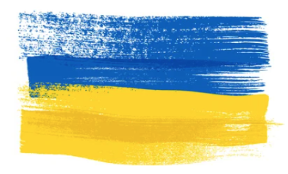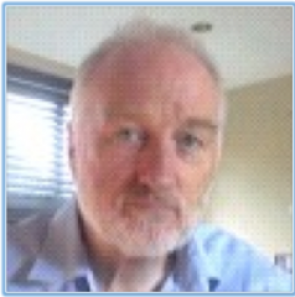You are here
- Home
- Professor Jeff Johnson
Professor Jeff Johnson
Professional biography
My research interest is in the application of systems thinking and complexity science for designing the future at local, national and global scales.

I am currently focussed on education and research to support Ukraine during the conflict as its people reconstruct its social, economic and environment systems over the decades to come.
I joined the Design Discipline at the OU in 1981 after three years in the Geography Department at Cambridge University working with Graham Chapman and Peter Gould. Before that I was in the Mathematics Department at Essex University working with Ron Atkin on his theory of Q-analysis for social systems. This has developed into what I now call multilevel hypernetworks. This research involves the policy-oriented application of hypernetwork theory in the design and management of complex social and technical systems at local and global levels.
My BA and PhD are in mathematics. I am a Fellow of the Institute of Mathematics and its Applications, a Fellow of the British Computer Society, a Chartered Mathematician and Chartered Engineer. I have been director of various engineering and consulting companies and am the CEO of Vision Scientific Ltd, a company I founded with Phil Picton in 1989. I am a Past President of the Complex Systems Society, and Deputy President of the UNESCO UniTwin Digital Campus for Complex Systems (CD-DC).
My OU undergraduate teaching has included: creating the CADPAC suite of interactive computer exercises for T363: Computer Aided Design; creating the SmartLab suite of interactive computer exercises for T395 - Mechatronics, Designing Intelligent Machine and co-authoring with Phil Picton the textbook Mechatronics: Concepts in Artificial Intelligence; leading the development of T183 - Design and the Web, T184 - Robotics and the meaning of life, A178 - Perspectives on Leonardo, TM190 - The Story of Maths, T218: Design for Engineers, writing the interactive computer exercises for T174 - Engineering the Future, chairing the production and presentation of T212 Electronics: sensing, logic & actuation, creating 'VisionLab' for the T312 Electronics module production team, and producing teaching materials for the new Open STEM Laboratory giving students remote access to hand-on electronics and robotics experiements. This includes leadng the creation of the NanoLab suite of interactive experiments for T366 NanoTechnology .
I worked with teams creating FutureLearn MOOCS for the CS-DC including: Global Systems Science and Policy, Systems Thinking and Complexity, and First Steps in Data Science with Google Analytics In 2020 I created the course Pandemics, modelling and policy.
My most recent books are Hypernetworks in the Science of Complex Systems (2014) and Non-Equilibrium Social Science (2017). My new book, Designing the Future, scheduled for 2023 shows how a synthesis between the design process, complex systems science and hypernetwork theory provides a framework for sucessfully creating and managing the complex social and socio-technical systems of the future.
My OU PhD supervisions include: Richard Murphy -Constraint-based design synthesis for computer aided design (1993); Meng Hua - A neural network based strategy for robot navigation in dynamic environments (1994), Paul Margerison - An algorithmic and interactive approach to computer art (1995), George Glaze - Graphic design evaluation: towards a rule-based system (1995), David Durling - Teaching with style: computer aided instruction, personality and design education (1996), Claudia Eckert - Intelligent support for knitwear design (1997), Linda Waddoups - A binary representation for built form (2001), Jack Cawkwell - An automated guided vehicle for local transport (2004), Sunny Bains - Physical computation and embodied artificial intelligence (2004), Nick Scott - Measures from complexity science provide manufacturing companies with insights previously unavailable to them (2004), John Welford - Artificial Intelligent for classifying oral lesions (2005), Pejman Iravani - An architecture for multilevel learning and robotic control based on concept generation (2005), Valery Rose - Evolutionary adaptive self-learning machine vision (2010), Joan Serras - Multidimensional multilevel representation for traffic simulation models (2008), James Law - Abstracting multidimensional concepts for multilevel decisionmaking in multirobot systems (2008), Vikas Chandra - Patenting and publication networks in stem cell research (2009), Paul Morley. Investigation into automated laundry sorting (2012), Anthony Johnston - Sensory augmentation for navigation in difficult urban environments by people with visual impairment (2013), Iain Kusel - A computational model of the emergence of seriation in the young child (2014), Tasos Varoudis - Augmented visibility in architectural space influencing movement patterns (2014), Bjorn Madsen - How to Make the Most Productive Intervention in a Complex Economic System (2015). Cristian Jimenez-Romero - A heterosynaptic spiking neural system for the development of Autonomous agents (2017). Pam Garthwait - Resilient Hospital Refurbishment (2017). Charlotte Foster: A ‘self-production approach for charities’: supporting and developing in-house video production in small UK charities (2021), Ruggero Rossi, Hypernetworks Analysis of RoboCup Interactions (2022). Current supervisions: Richard Charlesworth - Representing multilevel systems for self-programing machines, Phil Davies - Systems thinking and complexity in policing, Barry O'Reilly - Antifragility in software systems design, Neil Andrews - Cooperating and Swarm Robots, Davin Parrot - The probabilistic assessment of intelligence and decisionmaking.
email: jeff dot johnson at open dot ac dot uk
